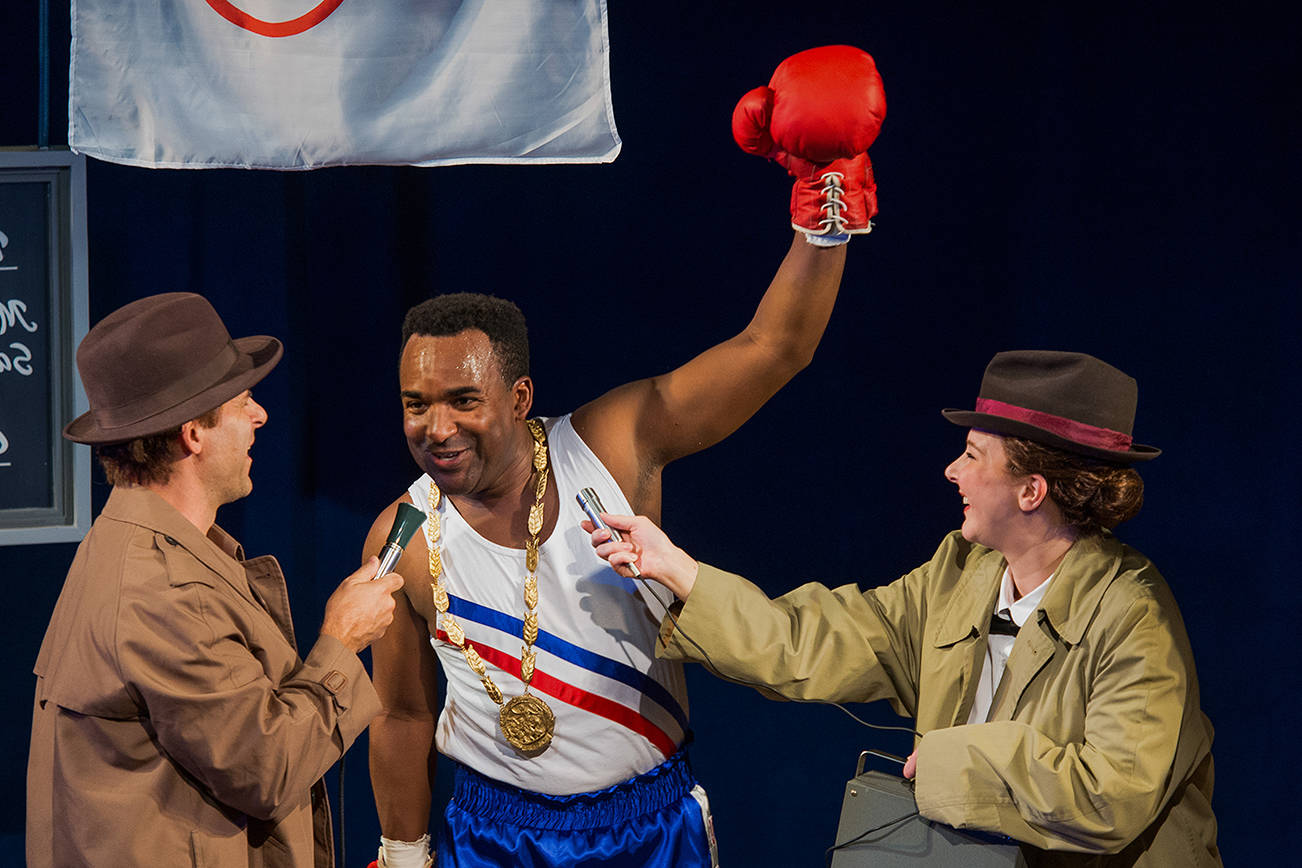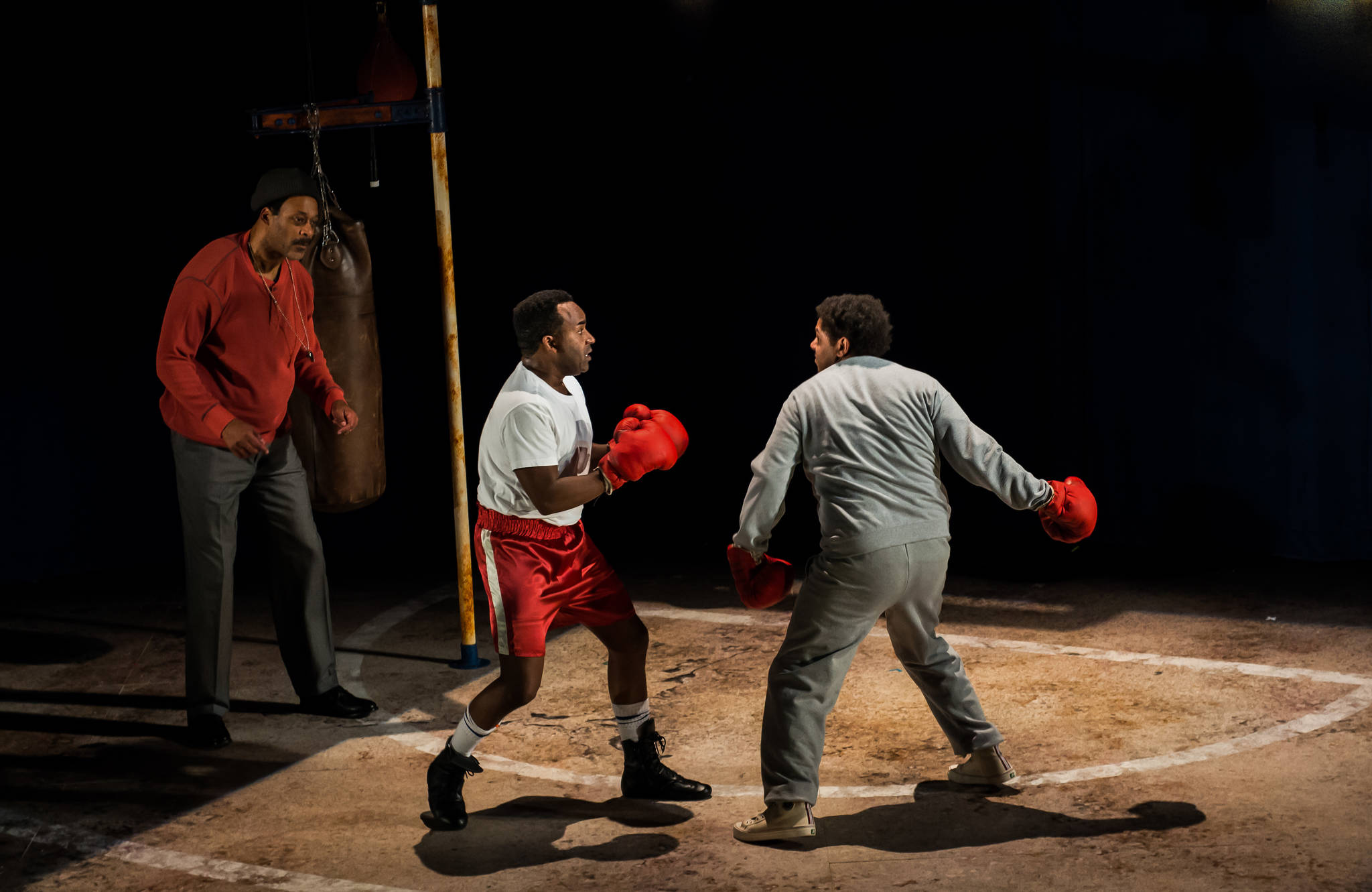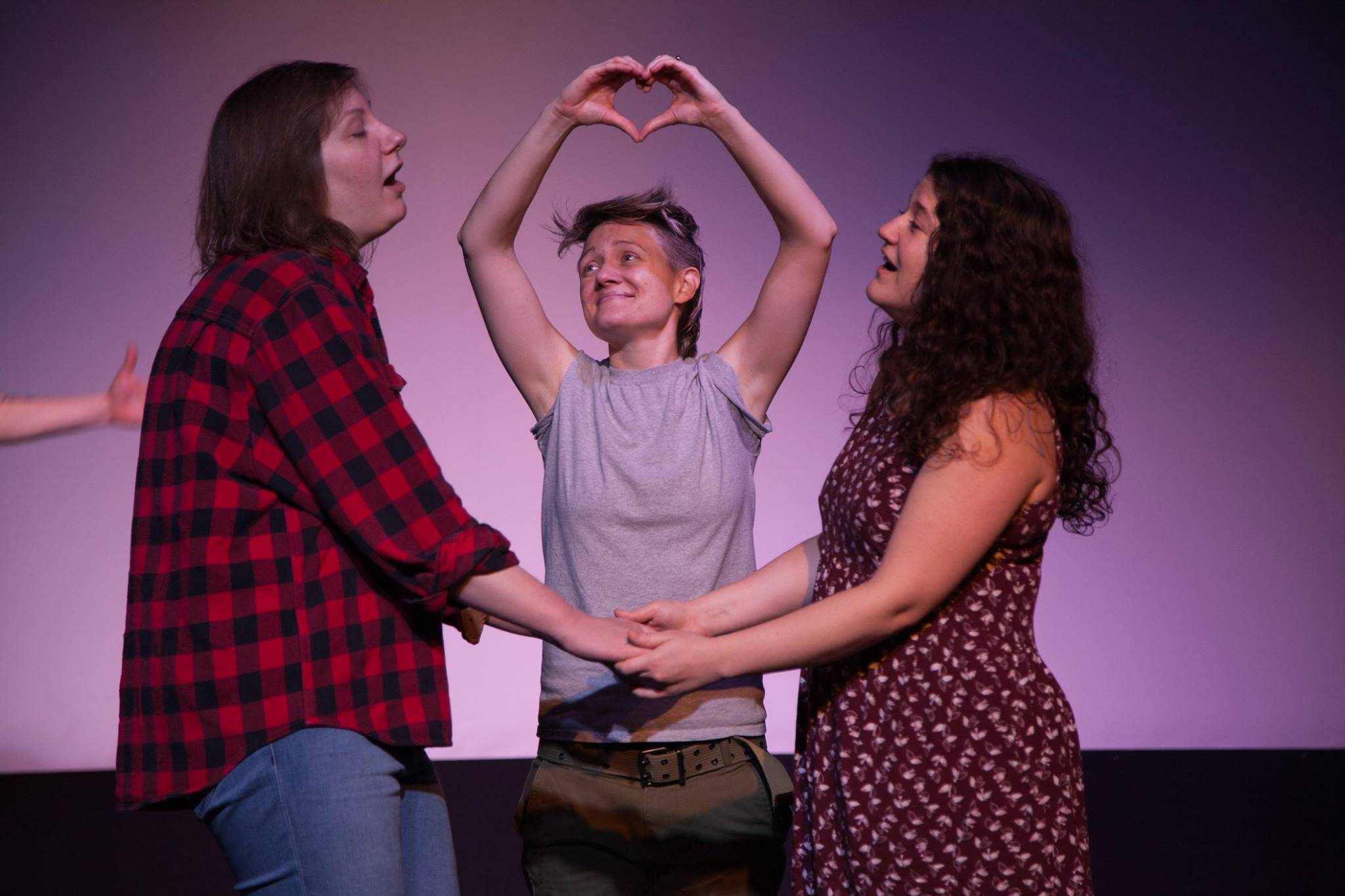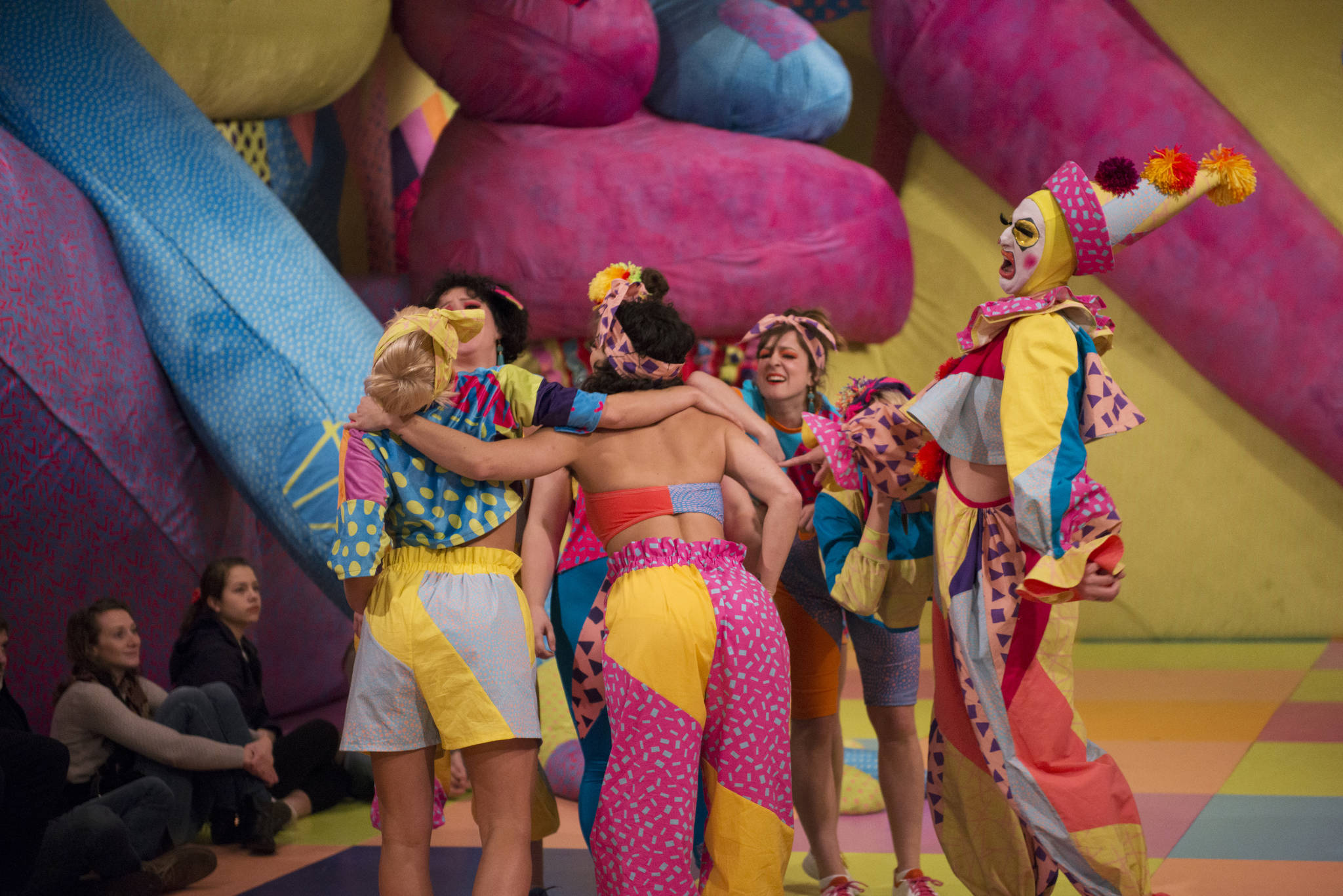There are reasons children’s theater often sticks to adaptations of popular children’s books. Not only do tales like The Very Hungry Caterpillar or The Velveteen Rabbit boast colorful non-human creatures, their lessons also come already tailor-made for young minds to understand. So how does one go about telling a historical story of a complex individual like Cassius Clay/Muhammad Ali in a way that kids can get the important messages (in a sit-still-able 70 minutes) while still being entertaining? Limit the scope and recontextualize. Seattle Children’s Theatre’s new production of Idris Goodwin’s And In This Corner: Cassius Clay tells the tale of Clay’s childhood and amateur boxing origins while exploring the issue of racial segregation by conflating it to a simpler topic to understand — bullying.
The narrative follows Clay (André G. Brown) from his childhood in Louisville, Ky., until his 1960 Olympic boxing triumph (right before he turned pro). When the brash Clay runs into a white cop named Joe Martin (Charles Leggett), the elder invites him to begin boxing training at Columbia Gym. With a combination of natural skills and work ethic, he rises up the amateur ranks, but he and his friends still fear the imposing neighborhood bully, Corky Baker (Andrew Lee Creech).
There’s a constant forward flow of energy tracking Clay’s ascent thanks to an easily flexible minimalist set design (three mobiles hang overhead with signs and heavy bags that can be swing out for an instantaneous change of setting) and some rhythmic poetry delivered by Clay in a narrator role that serves as connective tissue between certain scenes with the rest of the cast providing stomp and clap beats. The boxing scenes are handled mostly through radio-style announcing as Clay bounds around the stage. For some reason the first fight he’s not presented an opponent to fake spar against, which is hard to follow for kids, but the problem is thankfully rectified in further fights. Apart from that first bout, the only presentational flaw of And In This Corner is the show neglecting to establish Clay’s age (or the date) as things progress, which would be especially helpful when you have adults playing the parts of children. The show also boasts a solid comedic sensibility be it in big gags (like Clay’s fear of flying necessitating a parachute purchase for his Olympics trip) or fun little details (the way Corky’s built as not just a bully, but a mythological figure, one that makes the ground tremble — and actors physically bounce up — when he stomps away).
All the while in the background, there’s reference to Louisville’s racial segregation, an issue young Clay tries to ignore because “[in the ring] you’re not colored or white. You’re fighters.” Because of the establishment of Corky’s bullying ways, the show is able to segue the unfairness into segregation for younger audiences. The host of lessons Clay learns as a fighter can then be applied to fighting racial injustice including how boxing isn’t about hitting the most, but how little you get hit and how there are two types of fighters: those who fight for themselves and those who fight for others. Eventually, Clay caves when it becomes clear that even if he’s a champion fighter, society won’t value him as an equal to white men. Thanks to the limited time frame, racism can be handled in a palpable way for a young audience without delving into the more complex issues of Muhammad Ali’s life down the road like being stripped of his boxing championship for avoiding the military draft or his own racist mocking of Joe Frazier.
The key to And In This Corner’s effectiveness is the pure exuberance its cast provides. Brown leads the way as Cassius Clay, beaming with a childhood confidence you’d expect out of someone who’d become a legendary trash talker. You can see the seeds being planted when his pals question why there are no negro superheros, and Cassius says he’s one. His pep is only topped by that of his playful little brother Rudy (Chip Sherman), who provides delightfully dopey comic relief. To counterbalance the youthful energy, the show leans on Charles Leggett — who always brings a stabilizing dramatic heft and charisma to any Seattle stage.
While it might not be a straight knockout punch, And In This Corner: Cassius Clay’s lively energy and peppering of comedic jabs should keep its target audience (and their parents) entertained, and could spark interest in the young ones to learn more about the most famous fighter to ever put on a pair of gloves.
And In This Corner: Cassius Clay
Thru November 25 | Seattle Children’s Theatre | $25–$45 | sct.org










